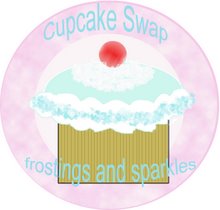
One of the things that I love about swaps is that you get to meet new people. My partner Laura (Polka Dot Pixie's Vintage Storybook Swap) of Little Orange Kitchen is such a complete darling!! She and I are from the same city, but she has moved away, so no Vince Vaughn sitings for her :( But she is just such a dear, her blog is fantastic, and her writing really just draws you right in. Her blog is the kind of blog that you want to have a nice cup of tea with, to really just sit back and enjoy. She is just as cute as a button, and if you've not had the pleasure of visiting the Little Orange Kitchen blog, you really must!


I had a great time making the bookmarks, truly such fun!! HUGE thanks to the amazingly talented Jenny Hernandez for hosting such a wonderful swap!!
I just uploaded some pictures of my sweet ones, so I'll share :)
Aidan is 14, Brendan is 11, Liam is 7, and Annalise is 5 :D :D




and this one is my Hubby, Pat, having some fun in the water

This last part is for my lovely friend Shannon from Paint Mine Pink. The Cotton and Candy swap was hosted by Shann, who is an Aussie, and they do not have Saltwater Taffy over there (and we don't have Fairy Bread over here, but I'm so glad to have learned about it!) Anyway, I've copied and pasted this from anycandy,usa.
Salt Water Taffy
How the beach-side favorite got its start
The exact history of how taffy came to be is still a mystery. Taffy has been part of American life since the late 1800s, and has been a beach-side tradition since it appeared in Atlantic City more than 100 years ago. Some say taffy appeared in the Midwest at county fairs even earlier. However, Atlantic City is known as the home of salt water taffy.
Many manufacturers claim a shopkeeper by the name of David Bradley was one of the first sellers of the candy. In 1883, a huge storm hit Atlantic City and flooded the boardwalk. Bradley’s store was flooded and the ocean water soaked his entire stock of taffy. In one account, a young girl asked if the store still had taffy for sale. Bradley jokingly told the girl to grab some ‘salt water taffy’. This is believed to be the first reference to salt water taffy. Today some recipes for salt water taffy call for a teaspoon of salt.
However, Joseph Fralinger is credited with popularizing salt water taffy. Fralinger observed sunbathers and boardwalk visitors and came up with the idea to sell salt water taffy. He figured tourists would want a reminder or souvenir of their vacation to Atlantic City. As an experiment, Fralinger boxed the candy and sold it one weekend. It was a huge success and the demand became too much for him to handle.
Competition was not far behind Fralinger’s success. Enoch James became Fralinger’s biggest competition around 1900. The James family moved from the Midwest to Atlantic City after hearing about the salt water taffy craze. James located his store near Fralinger’s shop on the boardwalk. Each shop had different recipes to advertise to visitors. When James came to town, Atlantic City’s first ‘taffy war’ started.
By the 1920s, salt water taffy was at the height of its popularity. More than 450 manufacturers were making and/or selling the candy at that time. In the early 1920s, John R. Edmiston obtained a trademark number for the term ‘original’ salt water taffy. After obtaining the trademark, Edmiston then asked the larger taffy companies for a share of their profits because they were using his trademarked name. The James brothers sued Edmiston over the use of the term ‘original’ salt water taffy. In 1923, the Supreme Court ruled the confection had been around too long and used by too many people to claim royalties off of the ‘original’ title.
Today salt water taffy is found mostly on the Eastern seaboard and is a popular treat for people to bring home after visiting one of those beaches. Taffy is also found in other parts of the country at some theme parks.
How is Salt Water Taffy Made?
The original process of making salt water taffy dates back more than 100 years. Skilled pullers would hang 10 to 25 pounds of taffy over hooks. When the taffy reached 5 to 6 feet in length, it would start to fall off the hooks. The puller would then pick the taffy up and put it back over the hook. The pullers listened for swish, smack, and slap noises to keep the taffy soft and less sticky. The process was typically done in plain sight on the boardwalk. A similar process is still used today when making homemade taffy, a great activity for children.
Most taffy recipes contain corn syrup, butter, sugar and some varying ingredients. The ingredients are melted down in kettles at a temperature between 250 to 270 degrees. The lower the temperature the chewier the candy, and the higher the heat the more brittle the candy. The ingredients are then put on a marble slab or pan and cooled. Once cool, the pulling process will start. The process of pulling the taffy over and over incorporates air into the mixture. The air gives taffy its unforgettable texture.
Eventually, the taffy will become harder to pull. When this happens, it is put on a marble slab or pan to hold its shape and then it is cut into pieces with greased scissors. Taffy should be stored in airtight containers to keep out the moisture. If any moisture gets into the candy, it will become very sticky.
The modern manufacturing methods have changed the way salt water taffy is made. Today’s taffy is cooked in large stainless steel or copper kettles and then vacuum cooked a second time. The pulling and packaging is now done with machines. This produces more quantities of taffy at greater speeds.



















